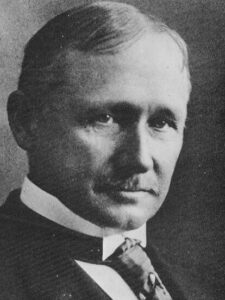Have you ever wondered why productivity is such a buzzword these days? Well, you’re in the right place! Let’s take a trip down the lanes of history and see how this concept came about and why it’s more crucial now than ever.
Roots of Productivity
Back in the days of the Industrial Revolution, productivity emerged as a light of efficiency. It all started with pioneers like Frederick Winslow Taylor, who revolutionised manufacturing with his principles of scientific management. Taylor’s ideas emphasised systematic workflows and the optimisation of resources, ultimately laying the foundation for modern productivity.
Fredrick Winslow Taylor’s Productivity Principles
Frederick Winslow Taylor (1856-1915) was an American mechanical engineer who is often hailed as the father of scientific management. His ideas and principles revolutionised the field of industrial engineering and had a profound impact on the way businesses and factories operate.

Taylor’s work was centered around the idea of applying scientific methods to management in order to optimise productivity and efficiency. He believed that by analysing and standardising work processes, businesses could achieve higher levels of output while minimising waste.
Here are some key principles of Taylor’s scientific management:
- Time and Motion Studies: Taylor conducted meticulous studies to break down work tasks into their smallest components. He analysed each movement and identified the most efficient way to perform them. This led to the development of standardised work methods.
- Piece Rate System: Taylor introduced the concept of paying workers based on their level of productivity. Workers who produced more received higher pay, which was intended to incentivise greater effort and output.
- Functional Foremanship: Taylor proposed the idea of separating the planning and execution aspects of work. Under this system, managers specialised in either planning (determining the most efficient methods) or execution (overseeing the actual work). This division of labor was designed to increase efficiency.
- Clear Division of Labor: Taylor believed in a clear division of labor, where each worker was assigned a specific task that they would specialise in. This way, they could become highly skilled and efficient at their particular job.
- Managerial Control: Taylor emphasised the role of management in providing detailed instructions and closely supervising workers to ensure they followed standardised processes. This required a significant level of control and oversight.
Taylor’s approach also faced criticism, particularly regarding its potential to dehumanise work and lead to worker dissatisfaction. Critics argued that it could lead to a loss of creativity and autonomy among workers.
Despite these criticisms, Frederick Winslow Taylor’s contributions to the field of management and productivity remain influential and continue to be studied and discussed in management theory and organisational behavior to this day. His legacy is a testament to the enduring impact of innovative ideas in the world of business and industry.




